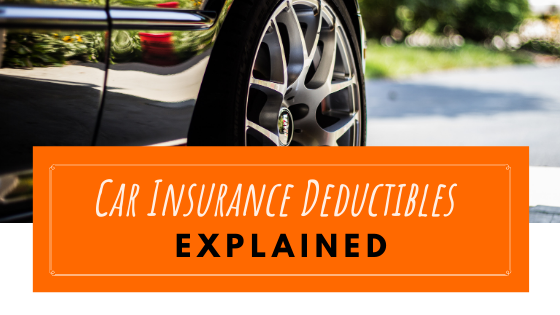Deductibles: the mysterious and puzzling numbers of insurance.
Like most people, you may not understand your car insurance deductibles and how they work. Plus, if you head down the road in Fayetteville, Arkansas, and are in a wreck, you may not know exactly what you’d be expected to pay for damages. That can be a scary thought, but never fear, G&G is here! Let’s solve the deal on deductibles.
How does a car insurance deductible work?
A deductible, whether it’s for your car or your home, is what you are responsible for paying if you have an accident or claim. For example, if you have a $1,000 deductible and your car accident is $2,500, you would pay $1,000 and your insurance provider would cover the rest. Before filing a claim, have an appraisal completed on the damage to know how much it will take to repair it. If you get an appraisal first, you will know if it is worth filing a claim.
Think about this, if it will cost you $300 to repair your car and your deductible is $500, it’s not worth filing a claim with your insurance provider since you will have to cover all of the costs. Your car insurance rates could go up when you file a claim (and nobody enjoys that!) so know the costs before you file a claim. Whether you have one or 10 car accidents, you are required to pay your deductible with most claims (we’ll also discuss when you don’t have to pay your deductible!). If your car is totaled, your insurance company pays you for its current value, minus your deductible.
The two most common coverages that include deductibles are comprehensive and collision, but some states do use deductibles for personal injury protection or uninsured/underinsured motorist property damage. The same rules for deductibles apply to all forms of car insurance coverage.
Generally, you only have to pay your deductible if your car is damaged, not the other person’s vehicle. Short rule: your insurance company pays, you pay.

Is there a situation where I don’t pay my car insurance deductible?
There are some situations where you may not have to pay your deductible, which can include:
Another driver hits you
Imagine this: you’re cruising through Fayetteville, Arkansas when another driver runs a red light and hits your brand-new truck. If the other driver is at fault, their insurer will cover the repair costs and you won’t have to pay your deductible. However, if you are in an accident where you and the other driver are both at fault, you may have to pay a portion of your deductible.
You decide not to repair your car
Whether you are required to repair your car or not depends on your insurance provider. Some insurers will pay you for the costs of repairs (minus your deductible) no matter what you decide to do with your vehicle. However, others will follow up with you to ensure you properly restored your car. Also, if you have a loan on your vehicle, your lender may require you to get your car fixed.
How does my car insurance deductible impact my price?
Now you have to find the right balance with your deductible. When you have a higher deductible, you have a lower car insurance rate (and vice versa). However, a higher deductible also means paying more out-of-pocket if you have a car accident or a claim. Be sure to ask your insurance provider about the difference in your insurance premium based on various deductible amounts. You may be able to lower your deductible and keep your rate approximately the same!

How much should my car insurance deductible be?
There are many options when it comes to your deductible. Typically, it ranges from $100 to $2,000. A $500 deductible is pretty common for drivers. If you are unsure of what your car insurance deductible should be, ask yourself if you’d rather pay less for auto insurance or car repairs. If you’d rather pay for car insurance, you should have a lower deductible. That way, you won’t have to pay as much for a car accident or claim.
Another factor to consider is how much you can afford to pay in the event of a wreck. Your deductible should always be under the amount that you can pay out of pocket.
Lastly, think about how likely an accident or claim is for you. Do you live in a busy metropolitan area? Do you drive your car a lot? Have you been in an accident before? If you have been in an accident before and you often drive on busier roads, you may be more likely to be in an accident. In that case, you may want a lower deductible, so you can get the best value from your insurance.
Deciding on your deductible is a big deal. If you are still unsure of what the best deductible is for you, ask your Insurance Advisor for their recommendation and assess your financial situation.
If you have questions or want to see how much your car insurance rates would be with a certain deductible, give G&G a call at 479-802-0086!
For more details on the top auto insurance options in Arkansas, read this ValuePenguin study on the best auto insurance in Arkansas.


